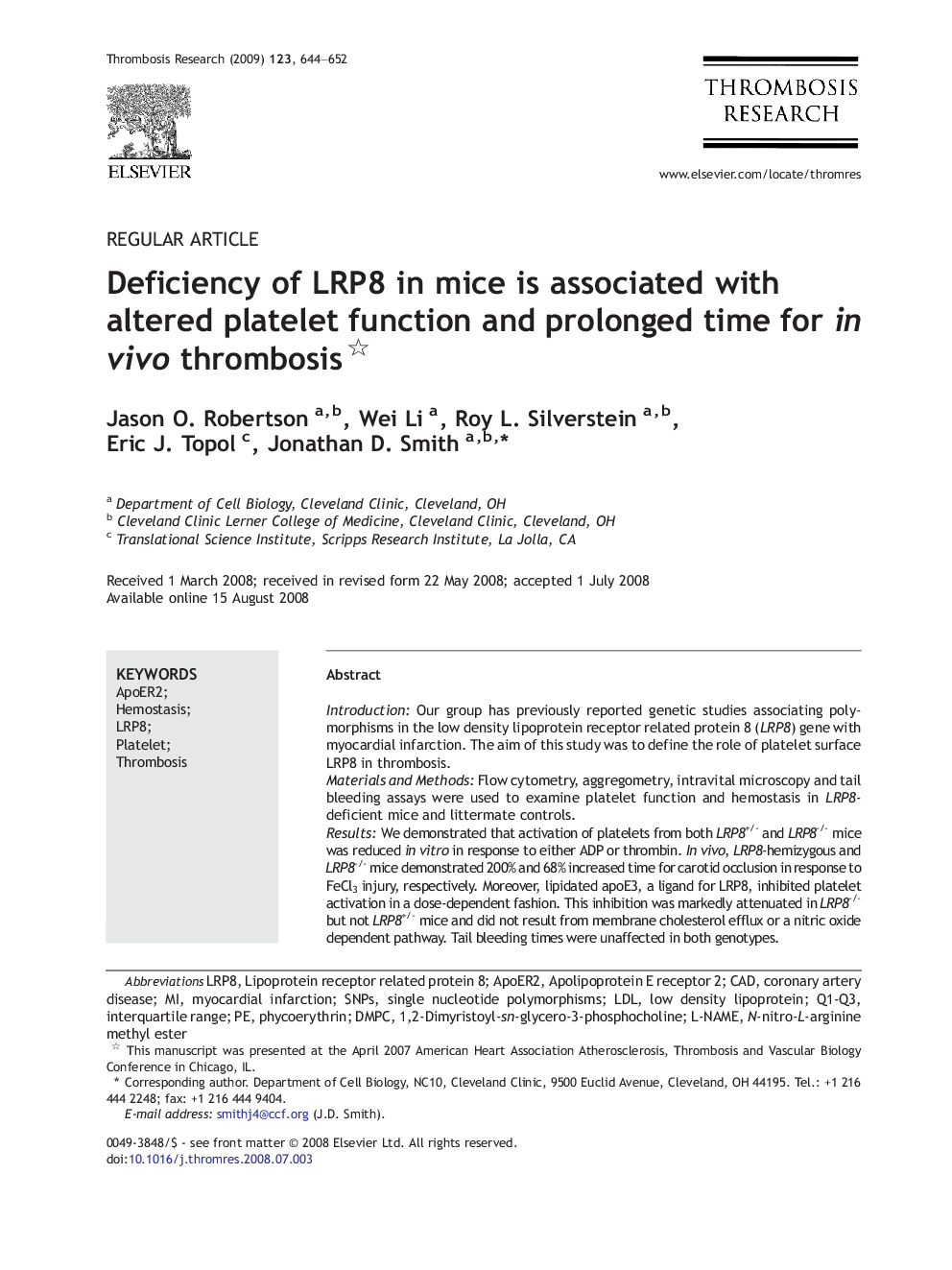| Article ID | Journal | Published Year | Pages | File Type |
|---|---|---|---|---|
| 3029219 | Thrombosis Research | 2009 | 9 Pages |
IntroductionOur group has previously reported genetic studies associating polymorphisms in the low density lipoprotein receptor related protein 8 (LRP8) gene with myocardial infarction. The aim of this study was to define the role of platelet surface LRP8 in thrombosis.Materials and MethodsFlow cytometry, aggregometry, intravital microscopy and tail bleeding assays were used to examine platelet function and hemostasis in LRP8-deficient mice and littermate controls.ResultsWe demonstrated that activation of platelets from both LRP8+/- and LRP8-/- mice was reduced in vitro in response to either ADP or thrombin. In vivo, LRP8-hemizygous and LRP8-/- mice demonstrated 200% and 68% increased time for carotid occlusion in response to FeCl3 injury, respectively. Moreover, lipidated apoE3, a ligand for LRP8, inhibited platelet activation in a dose-dependent fashion. This inhibition was markedly attenuated in LRP8-/- but not LRP8+/- mice and did not result from membrane cholesterol efflux or a nitric oxide dependent pathway. Tail bleeding times were unaffected in both genotypes.ConclusionsOur results suggest that LRP8 is capable of altering thrombosis without affecting normal hemostasis through mechanisms both dependent on and independent of apoE. This suggests a means whereby clot formation could be affected in humans with LRP8 gene variants.
